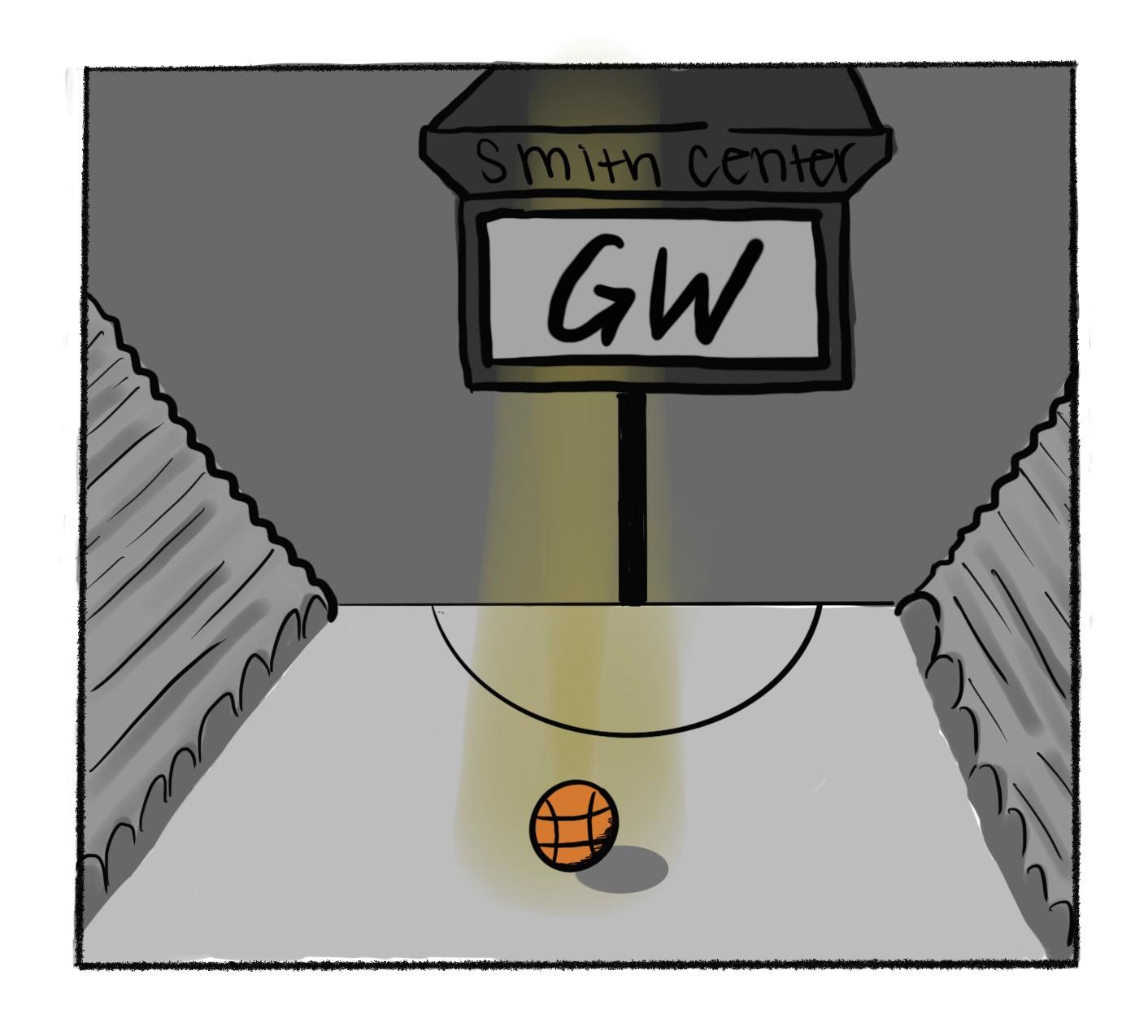Thousands of college athletes have tested positive for COVID-19 since the start of the pandemic, sidelining teams for weeks on end. Just like almost every school, GW has faced these challenges – following a positive test from men’s basketball head coach Jamion Christian, the team has missed a month’s worth of games. And countless other teams have had to pause operations because another person came into contact with a COVID-19 case.

Hannah Thacker | Opinions Editor
No one wants to say it, but it is not worth playing a sport when dozens of athletes’ and coaches’ health and safety are on the line. We have seen each team nearly cut their seasons in half because of COVID-19, but the danger to players and the community is still not zero. The risk is high, and the benefit is low. A half-baked season is not worth risking the health of athletes, staff and the community. Administrators should draw a line and pause sports this spring.
Both basketball teams – men’s and women’s – have presented at least one positive coronavirus case. Almost all sports, from basketball to gymnastics, are experiencing stop-and-go delays due to the virus. The women’s squash team couldn’t even hold a season because some international students are hesitant to travel back to campus during the pandemic, and the men’s squash season is nearly nonexistent. The level to which the season has been disrupted points to the danger the pandemic poses to the community.
Pausing all sports would help to minimize the spread of COVID-19 by cutting sports travel, player interactions, staff interactions and more. The chances of a member of a team contracting the virus are not insignificant, with D.C. still experiencing relatively high case numbers. Traveling to another school then risks bringing the virus to another community – and it risks bringing the virus back to GW. We’re hopefully nearing the end of the pandemic – teams should not risk their health just to be able to slide in a few games before the spring semester ends.
Even if teams scrupulously adhere to mask-wearing and social distancing requirements, there is still potential for outbreaks to occur on the court, on the field, in transit or at gatherings. These protocols are not perfect – they mitigate risk, rather than eliminating it. And there’s always the chance that rules can get broken – let’s face it, college students have a high potential for throwing caution to the wind after essentially losing a full year of our young lives. These are fairly large holes that exist in any strategy to keep teams safe.
This is not just theoretical – there is ample evidence that college athletics have contributed to the spread of COVID-19 cases nationwide. Across university-level sports, more than 6,000 confirmed cases of the virus have been reported since the start of 2020. Not all departments and colleges have provided their case numbers, so the real tally is almost certainly way higher. College campuses have already been hotbeds for virus transmission, driven in part by students partying and socializing. Letting teams shuttle back and forth between campuses dramatically escalates the risk of making a disastrous public health situation even worse.
Obviously, pausing sports would not be without downsides, especially for the players. For student-athletes, their sport is a huge part of their life, their pride and even their career goals. The idea of robbing athletes, coaches and staff of something so important to them during a time of indescribable general stress and despair should not be taken lightly. But beyond the very valid personal disappointment it would cause, pausing sports would not necessarily harm college athletes materially as much as one might think. For example, the NCAA has decreed that all divisions need to ensure student-athletes will continue to receive their scholarships during the pandemic, even if they don’t play. Although it is possible for a player to opt out of playing and a coach to retaliate by removing them from the team, pausing sports would eliminate the risk involved in one player choosing to opt out.
We are not saying that college athletes should simply shut up and stop dribbling – college students across the board have been told to suck it up more than enough during this crisis. But because of the risk of catching and spreading the virus that has killed nearly half a million people, GW should consider pausing athletics for the spring.
The editorial board is composed of Hatchet staff members and operates separately from the newsroom. This week’s piece was written by opinions editor Hannah Thacker and contributing opinions editor Andrew Sugrue, based on discussions with managing director Kiran Hoeffner-Shah, managing editor Parth Kotak, culture editor Anna Boone and design editor Olivia Columbus. Per standard practice to avoid a conflict of interest, sports editor Emily Maise recused herself from this week’s editorial board discussions.


